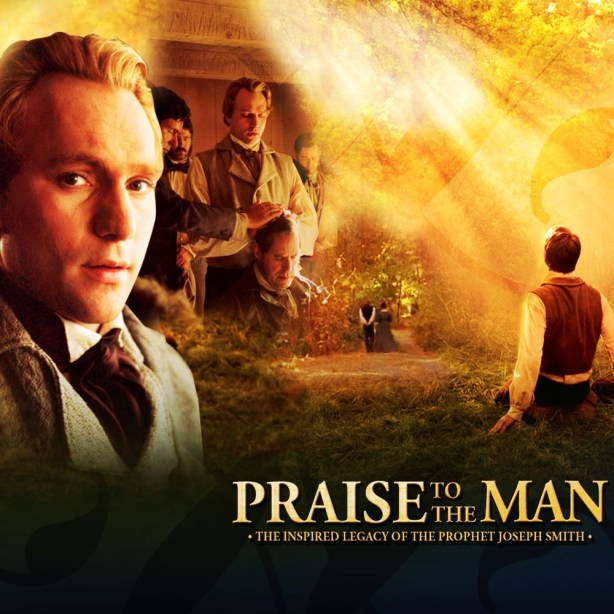“And they fell down before me, and were about to worship me, but I would not suffer them, saying: I am thy brother, yea, even thy younger brother; wherefore, worship the Lord thy God…”
— 1 Nephi 17:55
I was a Latter-day Saint for thirty years before becoming an Evangelical Christian in 2016. I was a faithful member who magnified his callings, served a mission, married in the temple, and held a temple recommend. I wrote a book defending LDS truth claims and debated Protestants in online forums, podcasts, and a couple of times in public.
I enjoyed being LDS, but there was one thing that always bothered me: the culture of prophet worship. For many years, my eyes were closed to it, but as time went on it became more and more unbearable. I remember sitting in a BYU Pathways class and a young man made a comment about one of the apostles working a pitiable job in his youth. Enthused by the idea, he said, “It just goes to show that the prophets and apostles aren’t that different from us, they could have worked miserable jobs or sinned… I mean, I’m sure they never committed any major sins, but…”
His comment got me thinking. Where had the idea that the prophets and apostles had not committed major sins come from? Wasn’t that what made repentance so great? You could be the worst sinner on earth, and repentance could transform you into a great apostle or a prophet. I thought of Alma the younger and the apostle Paul, who had anything but flawless pasts. Yet somehow, the LDS mindset no longer considered that a valid possibility for its leaders.
Near the end of my tenure in Mormonism, someone got up to teach a lesson in Elder’s Quorum about Joseph Smith. He started the lesson saying he was going to teach us 15 things about the prophet that we probably didn’t know. My interest piqued. I wondered if he would mention that Joseph had a gun the day he was killed, or that he married other men’s wives. However, as he plunged through the points it became obvious that only good things were being said. Thus the Joseph we were learning about was not a man, but God.
Assuming that Joseph really was a prophet, and his mission was to divert attention away from himself to God, I cannot help wondering what he would think about the young man’s comments in college, or the Elder Quorum instructor’s lesson that day. Furthermore, if he was a prophet of God, I cannot imagine any reaction short of humiliation from him at the sound of hymn 27, “Praise to the Man” being sung in church.
Doctrine and Covenants 25:12 says: For my soul delighteth in the song of the heart; yea, the song of the righteous is a prayer unto me, and it shall be answered with a blessing upon their heads.
In other words, hymns are prayers to God according to the Doctrine and Covenants. So instead of a hymn and an opening prayer, there are actually two opening prayers. One’s just set to music. That’s why I have a problem with hymn 27, and you should too. A song about a man does not qualify as a prayer to God, so every time it is sung in church an opportunity is missed to receive the blessings promised in D&C 25:12.
Singing “Praise to the Man” is more than a problem of simple opportunity cost. No matter how you slice it, the song is worshipful in nature, and since Joseph is the subject of the song, the worship goes to him. Consider the fact that if Jesus became the song’s subject instead of Joseph, the lyrics would largely remain true, and would certainly be worshipful.
Now you’re probably thinking, “Great, another fallacious argument that Mormons worship Joseph Smith”. However, that’s not quite what I’m saying. To be fair, Mormon don’t typically have Joseph shrines in their houses. I have never heard a Mormon say, “So and so really needs Joseph in their lives,” or “save us, Lord Joseph.” Nor do I consider singing hymn 27 as idolatrous as praying to saints.
However, we read in Exodus 20:3-5 that we are to have no other gods before God, for He “is a jealous God.” You may think that since Joseph was God’s prophet, reverencing him is a way to worship God, but I would caution you against that mindset. If a man had a servant, and his bride slept with that servant, that would not be honoring her husband. This analogy is especially applicable because the church is the bride of Christ. In 2 Corinthians 11:2 Paul says, “For I am jealous over you with godly jealousy: for I have espoused you to one husband that I may present you as a chaste virgin to Christ.”
I plead with you my friends, not to be taken by the subtle culture of prophet worship. When hymn 27 is sung, don’t sing along. In Matthew 6, we are taught that if our eye is single, our whole body will be filled with light. Immediately after, in verse 24 Jesus says no man can serve two masters, “for either he will hate the one and love the other, or he will be devoted to the one and despise the other.” If your praise and your hymns are directed at Joseph Smith, then your eye is not single to the glory of God.
“And if it seem evil unto you to serve the Lord, choose you this day whom ye will serve; whether the gods which your fathers served that were on the other side of the flood, or the gods of the Amorites, in whose land ye dwell: but as for me and my house, we will serve the Lord.“
— Joshua 24:15 (KJV)
In Christ’s Bond Service,
Michael Flournoy


OK, I’m stunned by the reaction that we’re getting from TBM Mormons who are denying that this hymn is man-worship elsewhere on the Internet where we have put up promotional posts for this article. Just stunned.
Mormon friends, here are the lyrics for “Praise to the Man”, can someone explain to me how this ISN’T man worship?
1. Praise to the man who communed with Jehovah!
Jesus anointed that Prophet and Seer.
Blessed to open the last dispensation,
Kings shall extol him, and nations revere.
Hail to the Prophet, ascended to heaven!
Traitors and tyrants now fight him in vain.
Mingling with Gods, he can plan for his brethren;
Death cannot conquer the hero again.
2. Praise to his mem’ry, he died as a martyr;
Honored and blest be his ever great name!
Long shall his blood, which was shed by assassins,
Plead unto heav’n while the earth lauds his fame.
Hail to the Prophet, ascended to heaven!
Traitors and tyrants now fight him in vain.
Mingling with Gods, he can plan for his brethren;
Death cannot conquer the hero again.
3. Great is his glory and endless his priesthood.
Ever and ever the keys he will hold.
Faithful and true, he will enter his kingdom,
Crowned in the midst of the prophets of old.
Hail to the Prophet, ascended to heaven!
Traitors and tyrants now fight him in vain.
Mingling with Gods, he can plan for his brethren;
Death cannot conquer the hero again.
4. Sacrifice brings forth the blessings of heaven;
Earth must atone for the blood of that man.
Wake up the world for the conflict of justice.
Millions shall know “Brother Joseph” again.
Hail to the Prophet, ascended to heaven!
Traitors and tyrants now fight him in vain.
Mingling with Gods, he can plan for his brethren;
Death cannot conquer the hero again.
(source = https://www.lds.org/music/library/hymns/praise-to-the-man?lang=eng&_r=1)
LikeLike
Well, Mormon friends, at least one member of the LdS Church “gets it”:
““Praise to the Man” (27). If I could jettison just one song from our repertoire, by God it would be this one—and it’s a shame, because the tune is fabulous and the tempo brisk, unlike the more snail-like LDS hymns. But this theology is simply awful. How is it that Mormons can insist up and down and until Tuesday that we don’t worship the prophet and yet continue to sing this hymn? Here the recently deceased Joseph Smith is communing with Jehovah, mingling with gods, and making plans on our behalf from heaven . . . kind of like God makes plans for us from heaven. Even worse, the song is all about how we need to glorify Joseph Smith, not God: “Kings shall extol him, and nations revere.” I realize this hymn has already been made slightly less vengeful and bloody from a 1927 revision, but that’s not enough: the whole concept of this song is about worshiping a human being. Only God deserves our worship. End of story.”
(Jana Riess, “It’s the Fantasy Mormon Hymnal!”, Religion News Service website, September 4, 2015; http://religionnews.com/2015/09/04/its-the-fantasy-mormon-hymnal )
LikeLike
I really appreciate how thoughtful and honest this post is. Thank you so much for sharing this and considering this topic!!
LikeLike
Yeah Fred! You’re talking about something very real – I’m planning on writing about it eventually. I struggle to define myself… I’m a TBM that totally believes we’re flawed… and grossly unrepentant for those flaws; really those flaws have led us to wander in the wilderness – you know – I see people suffering from our failures and really wonder how on earth the whole body of the church erred as it has…. I know how it happened but it just seems unfathomable to me.
Thanks for your speaking truth with kindness! – and praise Jesus Christ! Not enough words in my heart to put praise where praise is due.
LikeLike
That’s very kind Greg, thank you.
However, just so there’s no confusion, I wanted to make sure that you knew that the article was written by Michael Flournoy, not me. I was merely the publisher.
I know it’s probably a little confusing because there was no byline on this article since it was an open letter so the signature at the bottom served that purpose rather than a traditional byline at the top.
I hope that this clarifies. And, again, thank you for your kind words.
LikeLiked by 1 person
Noted :)
LikeLike
I’m an active LDS member and I just cringe when that hymn and “We Thank Thee Oh God for a Prophet” is played. I give all thanks and praise to God.
LikeLike